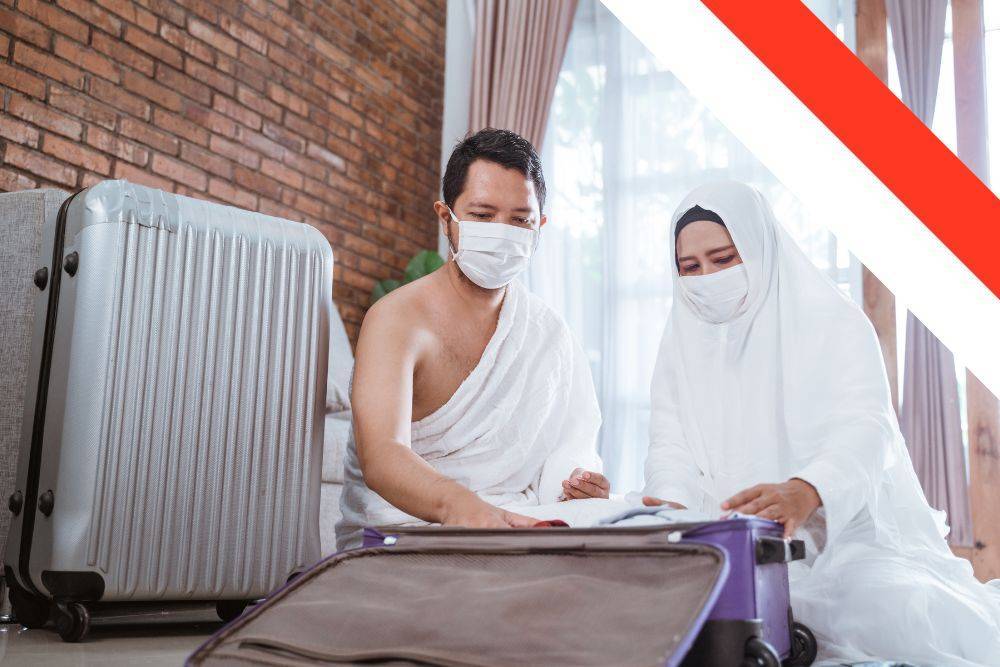The Indonesian Ministry of Religious Affairs has cautioned Indonesian citizens against attempting the Hajj without the correct visa. Saudi authorities are rejecting thousands of unregistered pilgrims worldwide ahead of the pilgrimage starting next week.
Hajj, an obligation for every capable Muslim, is scheduled to commence on 14 June. Hundreds of thousands of pilgrims have arrived in recent weeks, including a substantial number from Indonesia.
Indonesia ranks among the top recipients of Hajj quotas sought by Saudi Arabia. This year, Indonesia has been allocated 241,000 pilgrims, the largest quota in its history and approximately 20,000 more than last year. Director General of Hajj and Umrah at the Ministry of Religious Affairs, Hilman Latief, stated that only Indonesian citizens with Hajj visas are permitted to undertake the religious pilgrimage.
The warning follows the detention of a group of 37 prospective Hajj pilgrims from Makassar, South Sulawesi, by Saudi authorities after they were found in possession of counterfeit Hajj visas. Saudi authorities have deported 34 Indonesian pilgrims who were detained for attempting Hajj without the correct visa, with the three travel coordinators, identified as SJ, SY, and MA, remaining in Saudi custody pending legal proceedings at the Public Prosecutor’s Office in Medina.
Understanding the Health Risks of Hajj Pilgrimage
The Hajj pilgrimage is a sacred duty for Muslims who are capable of undertaking it. However, it poses some health risks amidst logistical and regulatory challenges. This article explores these risks, focusing on the recent incidents involving Indonesian pilgrims and the broader implications for pilgrims from Asia.
The Significance of Hajj Pilgrimage
Hajj, one of the Five Pillars of Islam, is a spiritual journey to Mecca that Muslims undertake annually. It holds immense religious significance, symbolising unity and equality among Muslims worldwide. However, the journey has challenges, especially concerning health and safety.
Recent Incidents and Health Concerns
The Indonesian Ministry of Religious Affairs has issued stern warnings following recent incidents involving Indonesian pilgrims. These incidents highlight the risks associated with inadequate preparation and health precautions during Hajj.
Health Risks During Hajj
Hajj presents a myriad of health risks due to the large congregations and intense physical demands placed on pilgrims. Key health concerns include:
Infectious Diseases
The dense crowds and close living quarters during Hajj facilitate the spread of infectious diseases such as respiratory infections, gastroenteritis, and meningitis. Proper vaccination and hygiene practices are crucial but often overlooked.
Heat-Related Illnesses
Mecca experiences extreme heat during the pilgrimage season, exposing pilgrims to heat exhaustion and heatstroke risks. Dehydration and overexertion exacerbate these risks, particularly among elderly pilgrims or those with pre-existing health conditions.
Physical Injuries
The sheer volume of pilgrims navigating confined spaces and performing rituals such as stoning the devil can lead to accidental injuries. Trampling incidents have occurred, highlighting the need for crowd control measures and enhanced safety protocols.
Mitigating Health Risks
Despite the challenges, several measures can mitigate health risks during Hajj:
Pre-Travel Health Assessments
Pilgrims, particularly elderly or chronically ill, should undergo thorough health assessments and obtain medical clearance before embarking on Hajj. This ensures they are physically fit to endure the rigours of the pilgrimage.
Vaccination Requirements
Saudi Arabia mandates specific vaccinations for all pilgrims to prevent the spread of infectious diseases. Pilgrims must adhere to these requirements and obtain vaccinations well before their journey.
Hygiene and Sanitation
Maintaining personal hygiene and adhering to sanitation practices, such as regular handwashing, can significantly reduce the risk of infectious diseases spreading within pilgrim camps and during rituals.
Heat Management
Pilgrims should stay hydrated, avoid direct sunlight during peak hours, and wear appropriate clothing to prevent heat-related illnesses. Rest breaks and seeking shade when necessary are essential to managing heat exposure.
Prioritising Health and Safety in Hajj
Hajj is a profoundly spiritual journey for millions of Muslims, yet it carries significant health risks, demanding careful planning and adherence to safety guidelines. Recent incidents with Indonesian pilgrims underscore the consequences of disregarding Hajj regulations. By prioritising health precautions and compliance, pilgrims can safely reduce risks and embrace Hajj’s spiritual essence.
Have a pressing question for a doctor? Medical Channel Asia has launched a community forum page where you can get questions answered by a medical specialist. Visit the community forum here.

